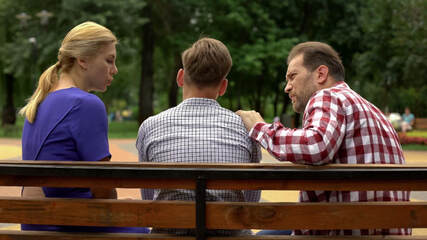|
The following information is shared by the Klinic Community Health Centre’s “After a Suicide: A Practical and Personal Guide for Survivors.”
Historian Arnold Toynbee once wrote, “There are always two parties to a death: the person who dies and the survivors who are bereaved.” When that death is by suicide, grief and despair may be further intensified and the healing process may be more complex. Survivors often struggle to understand “why” their friend or loved one chose to end their life and question what they could have said or done differently to have changed the outcome. In the aftermath of suicide, it is difficult enough as an adult to try to wrap our minds around what has occurred. Given the stage of development adolescents are in, it comes as no surprise that it tends to be even more difficult for a young person to try and make sense of the loss of a friend or family member by suicide. A young person needs information, guidance and continued support to help them get through the grieving process and move forward in a positive direction. A good first step is helping them understand why people die by suicide. We may not know for sure why a person they cared about made the choice they did; however, we can share with them common factors and circumstances that contribute to someone’s decision to end their life. We know that factors, such as loss, addictions, trauma, depression, physical and mental illness, and major life changes, can make some people feel overwhelmed and unable to cope to the point that their thoughts turn to suicide. We also know that people who consider suicide usually have extreme feelings of hopelessness, despair and helplessness. They believe that the tremendous amount of pain they are in will never end and that the only way to stop their suffering is to end their life. Even people who have strong support systems around them may be so debilitated by their pain that they fail to ask for help when it is needed most. Important statements a young person needs to hear and believe in the aftermath of suicide:
The death of someone we care about, especially death by suicide, is devastating, complex and immensely impactful, especially for young people. It’s important to provide them with information, guidance and support—encouraging them to live alongside their grief and to grow from it. A final reminder from Klinic Community Health Centre, “Not only is it important to grieve, it is necessary to experience the pain of your loss in order to gain relief.” Sources Full Circle Health Centre, Maryse Eubank, M.Ed: Supporting Teens After a Suicide Loss. Klinic Community Health Centre: After a Suicide: A Practical and Personal Guide for Survivors. About Know! Parent Tips Everyone has a role in prevention. By reading and sharing this Know! Parent Tip today, you’re doing your part to prevent substance misuse and create a healthier world for all. We created these free parent tips to empower parents like you. Know! helps you promote health and wellness and protect the young person in your life from unhealthy behaviors, including alcohol, tobacco, and other drug use. However, we rely on donations from people like you to provide these tips. If you found this tip interesting or helpful, please consider donating at preventionactionalliance.org/donate. Know! Parent Tips are provided by Prevention Action Alliance with support from the Ohio Department of Mental Health & Addiction Services, the Ohio Department of Education, and Start Talking!. Know! Parent Tips are also available in Spanish at the Know! archives.
0 Comments
Your comment will be posted after it is approved.
Leave a Reply. |
Archives
February 2024
|


 RSS Feed
RSS Feed

